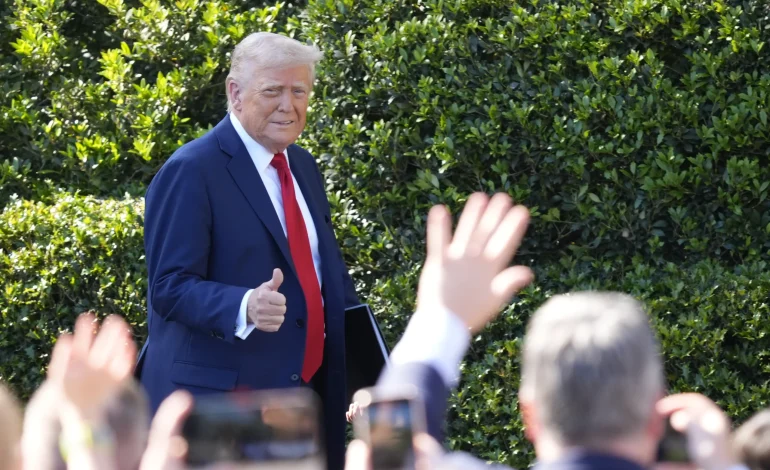As lawmakers return to Washington following a two-week recess, Congressional Republicans are entering a pivotal phase in their effort to finalize what President Donald Trump has dubbed a “big, beautiful bill.”
This ambitious legislative package, which incorporates a wide range of Republican priorities—tax policy, border security, energy strategy, and federal spending—is poised to become a signature achievement of Trump’s second term if passed.
The legislation, which will be developed through the budget reconciliation process, is being pursued on a party-line basis, meaning Republicans intend to pass it without Democratic support. Reconciliation allows for expedited Senate consideration by bypassing the filibuster, but requires every provision to be directly related to spending or revenue.
The House and Senate are working on separate versions of the bill in accordance with a budget blueprint passed earlier this month. While both chambers share broad objectives—such as making Trump’s 2017 tax cuts permanent, eliminating taxes on tips and overtime, boosting defense and border security funding, and avoiding a debt ceiling crisis—their approaches differ sharply in fiscal terms.
The House, under Speaker Mike Johnson’s direction, has been tasked with identifying at least $1.5 trillion in spending cuts. In contrast, the Senate’s version sets a far more modest target of $4 billion in reductions. Reconciling these differences is expected to be a politically difficult task.
Speaker Johnson aims to pass the House version of the bill by Memorial Day, while Senate leaders anticipate a longer timeline, with hopes of completing their work by July 4.
One of the most contentious issues centers on potential cuts to Medicaid. The House’s budget instructions call for nearly $880 billion in savings from programs under the Energy and Commerce Committee’s purview. Nonpartisan analysts warn that such reductions are unlikely without affecting Medicaid benefits.
Republicans are divided on this front. Some lawmakers, including Senator Josh Hawley, have expressed firm opposition to any bill that reduces Medicaid coverage. Trump himself has stated he will not support cuts to core Medicaid benefits, though he continues to emphasize reducing fraud, waste, and abuse within the program.
Tax policy is the cornerstone of the package, with Treasury Secretary Scott Bessent indicating that negotiations are advancing on proposals to extend the Trump-era tax cuts. These include eliminating taxes on Social Security payments, overtime, and tips; allowing full expensing for factory equipment and media investments; and offering deductions for auto loans on American-made vehicles.
While these provisions are projected to reduce taxes for many Americans, they come at a high fiscal cost—estimated at $3.8 trillion over the next decade. GOP lawmakers plan to classify them as “current policy” to avoid triggering budget enforcement rules, a strategy that may face scrutiny from the Senate parliamentarian.
The legislation’s proposed tax cuts and defense spending increases are raising alarms among fiscal conservatives, who fear the bill may ultimately add more to the national deficit than it offsets. To secure their votes, House and Senate leaders have promised deep spending reductions, which could reignite disputes over Medicaid and other federal programs.
Johnson has urged urgency, warning that a narrow GOP majority in the House leaves little margin for dissent. Eleven committees are expected to unveil pieces of the bill in the coming weeks, with the final product intended to provide what Johnson describes as a “turbo boost for the economy.”
Defense and homeland security provisions are less controversial within the GOP. The proposal includes approximately $150 billion in defense spending, with major allocations for missile defense, naval construction, and munitions. The border security section proposes $46.5 billion for new physical barriers, $5 billion for Customs facilities, and billions more for staffing and technology upgrades.
The bill also includes over $1 billion for international event security tied to the 2026 FIFA World Cup and the 2028 Summer Olympics, reflecting broader homeland security concerns.










The latest news in your social feeds
Subscribe to our social media platforms to stay tuned